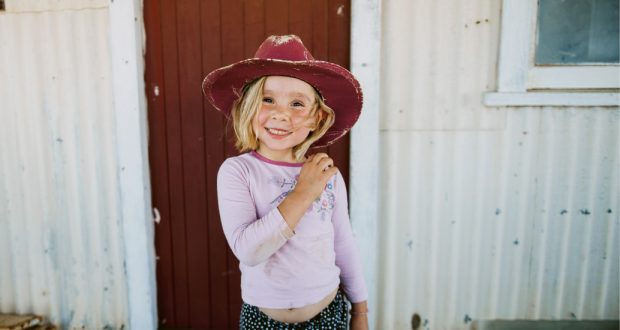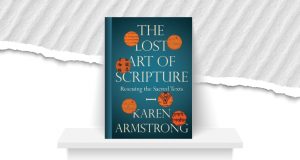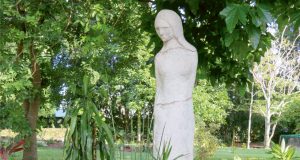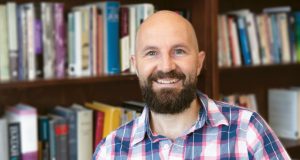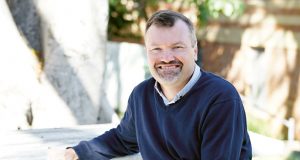Remote Queensland can be a challenging environment—socially, financially and emotionally—to live in (and make a living from), but Outback Futures is helping residents build resilience and strengthen their communities by providing mental and allied health services. Ben Rogers reports on the not-for-profit organisation and how Toowong Uniting Church was an integral part of its creation.
To understand the genesis of Outback Futures you have to go all the way to far North Queensland, specifically Cobbold Gorge, the state’s youngest gorge which is a mere 10 000-years-old.
Cobbold Gorge was the setting for a SU Queensland (Scripture Union) camp for mothers and their children from remote properties. The annual get-together offered a valuable opportunity for connection, giving youngsters a chance to socialise when some had never even tried a team sport.
These were the families that might see other people only a few times a year due to their isolated location; the kind of remote existence which can lead to mental strain and to see a psychologist entails days of travel and many weeks between therapy sessions.
From Brisbane to the outback
In 2011, Brisbane psychologist and Toowong Uniting Church member Selena Gomersall made the long trek from inner-city Brisbane to the gorge and counselled around thirty women and their children. What she discovered was an alarming array of significant mental health challenges and a lack of support and resources.
“I was deeply distressed by the situation I found— families managing autism, kids and families battling with anxiety and depression, struggling marriages, financial stress and strain, all with inconsistent support,” says Selena.
Selena returned to the Toowong congregation, where her husband Simon was the pastor, and gathered a team of 20 who would eventually attend the camp, supporting an amazing locally run program through activities such as team sports, music lessons and a playgroup.
The group made the 2500 kilometre trek by car and this was very much a part of understanding the struggle facing the families they were to meet: “The travel is part of it because you cannot understand how isolated these people are until you’ve driven it,” says Selena. “The gap between bush and city is enormous.”
The travelling group of 20 would, in subsequent visits, expand to include occupational therapists, speech therapists, learning and literacy specialists, counsellors and psychologists, and a makeshift clinic was established in the 38 degree heat.
Evolving the service
Building trusted relationships and listening to the unique needs of each community meant that support and response would always be shaped according to a bush informed agenda and communities across the state began connecting with Outback Futures’ diverse range of mental and allied health professionals. The organisation subsequently found themselves servicing a geographical spread larger than some European nations.
In 2013 Outback Futures was officially established as a company limited by guarantee and the following year registered as a charity with deductible gift receipt status. The organisation’s deep commitment to working with the communities they serve and building trust in that relationship has allowed them to explore new opportunities over the years and organically evolve to respond directly to the needs they are hearing first hand.
“People and communities respond positively when they are valued, respected and recognise authenticity in relationships,” says Rhys Tregenza, Outback Futures’ Executive Manager. “Out of these trusted relationships we have been invited to co-design with local community advocates.
“An example of one program was a cyber safety day for families living on remote properties, many of whom have kids attending boarding school. We also developed, alongside a local regional council, a new whole community and workplace well-being program called ‘Head Yakka’. The response to locally owned and created initiatives often results in great buy-in by the communities in which they are developed, as well as strengthening the level of self-efficacy which we are trying to build.”
And it is clear the organisation’s work is making a tangible difference in the lives of those in the community; one Longreach resident says, “As a remote Queenslander, I don’t want our communities to ever be without Outback Futures and the services they offer.”
A central west Queensland mother says, “Outback Futures has offered me the opportunity for consistency in the care of my children. A rare gift.”
Another mother from remote North Queensland adds, “With Outback Futures it’s not just a job, but more like a calling—they actually care.”
Faith at its core
Given the integral part Toowong Uniting Church played in Outback Futures’ development, not to mention Simon Gomersall’s affiliation with the Uniting Church (he has since moved from ministering at Toowong to lecturing at Trinity College Queensland), Christianity has always been ubiquitous in the organisation’s work.
“We talk to the families we meet expressing that we believe this is a calling; we’ve had families come to faith who were initially engaged with Outback Futures’ services,” says Selena.
“On occasion Outback Futures would fly a family in a crisis to Brisbane, to offer specific and tailored support, and even now if a remote family finds themselves in the ‘big smoke’ getting medical treatment, Outback Futures will reach out and provide care based on a trusted relationship. In the early days, Toowong Uniting Church was a vital part of that extended caring family for many of our clients.
“As we’ve expanded and involved a lot of different churches and organisations, we now have a prayer team and we have regular prayer and praise services. Many of our clinical team are Christians and there is a real sense of mission in the work we do.”
Additionally Outback Futures’ board comprises committed Christians who must support a statement of faith before they join the organisation.
A congregation for community
Toowong Uniting Church’s role in the creation of Outback Futures is an outstanding example of how congregations can make a difference in the community—whether it’s their own local area or a community hundreds of kilometres away.
“As the pastor of a local congregation, it was exciting to see the way the Toowong Uniting Church got behind Outback Futures,” says Simon Gomersall. “The organisation emerged as we served as volunteers alongside locals from remote regions.”
Simon is keen to emphasise that Toowong’s experience is just one example of how churches can positively impact those in need when they rethink how they are serving community.
“As soon as you realise that we have a sending God—the father sent the son, the son sent the spirit and the spirit sends us out into the world—you quickly realise that being a disciple involves looking beyond ourselves to see how we can express the life of God to those who have no idea they are loved and cherished by their creator,” says Simon. “As William Temple once said, ‘The church is the only organisation in the world that exists primarily for the benefit of its non-members.’ ”
Congregations and individuals can support the work of Outback Futures through prayers and financial support. Rhys Tregenza says that raising awareness about the unique context of remote Queensland is also a great way for people to support their work.
“Perhaps take the time to venture out west and see for yourself the challenges and beauty of remote Queensland. I also reckon that congregations in remote regions might value a sister church partnership with a city congregation if the opportunity arose and an appropriate relational context was established.”
For more information about Outback Futures visit outbackfutures.org.au or search for Outback Futures on Facebook or Instagram.
 JourneyOnline
JourneyOnline
